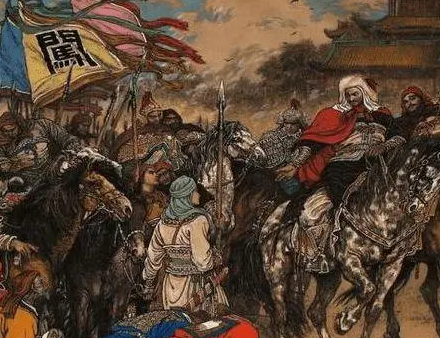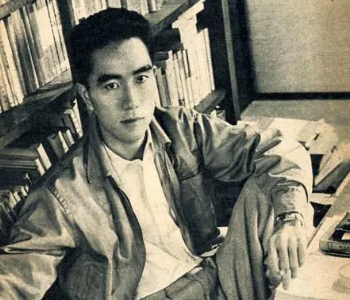Towards the end of the Ming Dynasty, the peasant revolt leader Li Zicheng once seemed unstoppable, capturing Beijing and establishing the brief Dashun regime. However, he encountered unprecedented defeat in the Battle of Shanhaiguan and never recovered from it. This article will explore the reasons why Li Zicheng never recovered from his defeat at Shanhaiguan.

First, the painful lesson of the defeat at Shanhaiguan.
The Battle of Shanhaiguan was a decisive battle between Li Zicheng and Wu Sangui, a military leader in the Liaodong region of the Ming Dynasty. Before this battle, Li Zicheng had captured Beijing and established the Dashun regime. However, the Battle of Shanhaiguan became a turning point in his fortune. In this battle, Li Zicheng's army was severely counterattacked by Wu Sangui and the Qing army, eventually leading to a rout. This defeat caused Li Zicheng to suffer heavy losses and his morale to plummet, never to recover.
Second, numerous internal conflicts.
After the defeat at Shanhaiguan, the internal conflicts within the Dashun regime gradually emerged. On one hand, there was severe corruption and power struggles among the leadership of the peasant revolt army, leading to political unrest. On the other hand, the contradictions between the peasant revolt army and the local elites and gentry became increasingly acute, making it difficult to gain their support. These internal conflicts severely weakened the combat effectiveness of the Dashun regime, making it impossible to recover in a short period of time.
Third, the oppression of Qing power.
After the defeat at Shanhaiguan, the Dashun regime faced tremendous pressure from the Qing power. The Qing rulers, in order to consolidate their ruling status, brutally suppressed the Dashun regime. They not only pursued the Dashun regime militarily but also politically divided and destroyed it. Under these circumstances, the Dashun regime of Li Zicheng fell into an unprecedented dilemma, unable to extricate itself.
Fourth, unstable public opinion.
After the defeat at Shanhaiguan, the ruling foundation of the Dashun regime was shaken. On one hand, the peasant revolt army committed serious acts of burning, killing, robbing, and pillaging during the war, causing strong resentment among the people. On the other hand, the Dashun regime failed to effectively address the issue of people's livelihood after the war, leading to the loss of confidence in it. Under these circumstances, the Dashun regime of Li Zicheng was difficult to gain the support of the people, thus falling into an isolated situation.
In summary, after the defeat at Shanhaiguan, due to numerous internal conflicts, the oppression of Qing power, and unstable public opinion, the Dashun regime of Li Zicheng never recovered. The failure of this war not only changed the fate of Li Zicheng but also altered the course of Chinese history.
Disclaimer: The above content is sourced from the internet and the copyright belongs to the original author. If there is any infringement of your original copyright, please inform us and we will delete the relevant content as soon as possible.































